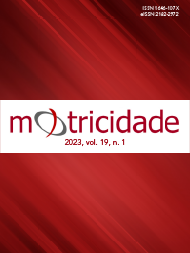The Use of Control Group in the Sports Science Research: The Ethical Challenge
DOI:
https://doi.org/10.6063/motricidade.27838Keywords:
ethics of control group, placebo control, clinical exercise, Randomised controlled trialAbstract
Medical ethicists have questioned the use of no-treatment controlled studies (placebo and sham procedure) of new therapies when safe and effective standard therapies are available for use as an active or “equivalence” control. Currently, ethical and conduct principles for biomedical research specifically prohibit projects that do not make or deny the “best-proven diagnosis and therapeutic treatment” to any participant in a clinical trial, including individuals who consent to randomisation into a control group. Studies of psychophysiological therapies are often criticised for not having a placebo or sham treatment control group. In sports science research, particularly in the case of clinical exercise, the use of control groups also raises ethical questions. This article briefly reviews the problem and discusses the ethical standards governing human research derived from the Nuremberg Code and the Declaration of Helsinki.
Downloads
Published
Issue
Section
License
The authors of submitted manuscripts must transfer the full copyright to Journal Motricidade / Sílabas Didáticas Editions. Granting copyright permission allows the publication and dissemination of the article in printed or electronic formats, and copyrights start at the moment the manuscript is accepted for publication. It also allows Journal Motricidade to use and commercialise the article in terms of licensing, lending or selling its content to indexation/abstracts databases and other entities.
According to the terms of the Creative Commons licence, authors may reproduce a reasonable number of copies for personal or professional purposes, but without any economic gain. SHERPA/RoMEO allows authors to post a final digital copy (post-printing version) of the article on their websites or on their institutions' scientific repository.


